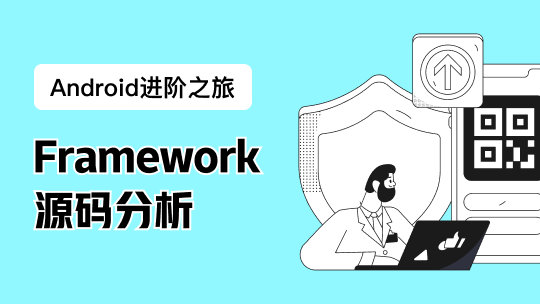战斗前准备:新建Spring Boot项目选择Thymeleaf和WebSocket依赖
广播式主要有7大步骤
- 1.配置WebSocket
- 2.编写浏览器向服务端发送消息(服务端用该类接收)
- 3. 编写服务端向浏览器发送消息(服务端用该类发送)
- 4. 编写一个Controller用于模拟发送和接收
- 5.添加脚本
- 6. 编写一个页面来演示
- 7. 配置ViewController
1.配置WebSocket
配置WebSocket.需要在配置类上使用@EnableWebSocketMessageBroker开启WebSocket支持,并实现WebSocketMessageBrokerConfigurer接口,重写方法来配置WebSocket
(SpringBoot颠覆者里是继承AbstractWebSocketMessageBrokerConfigurer 类,但是那个类已经过时了)
import org.springframework.context.annotation.Configuration;
import org.springframework.messaging.simp.config.MessageBrokerRegistry;
import org.springframework.web.socket.config.annotation.EnableWebSocketMessageBroker;
import org.springframework.web.socket.config.annotation.StompEndpointRegistry;
import org.springframework.web.socket.config.annotation.WebSocketMessageBrokerConfigurer;
/**
* 第一步,配置WebSocket.需要在配置类上使用@EnableWebSocketMessageBroker开启WebSocket支持
* 并实现WebSocketMessageBrokerConfigurer接口
* 重写方法来配置WebSocket
*/
@Configuration
//通过@EnableWebSocketMessageBroker注解开启使用STOMP协议在传输基于代理(message broker)的消息
@EnableWebSocketMessageBroker
public class WebSocketConfig implements WebSocketMessageBrokerConfigurer {
//注册STOMP协议的节点(endpoint),并映射指定的URL
public void registerStompEndpoints(StompEndpointRegistry registry){
//注册一个STOMP的endpoint,并指定使用SockJS协议
registry.addEndpoint("/endpointWisely").withSockJS();
}
//配置消息代理(Message Broker)
public void configureMessageBroker(MessageBrokerRegistry registry){
//广播式配置一个/topic消息代理
registry.enableSimpleBroker("/topic");
}
}
2.编写浏览器向服务端发送消息(服务端用该类接收)
//浏览器向服务端发送的消息用此类接收
public class WiselyMessage {
public String name;
public String getName(){
return name;
}
}
3. 编写服务端向浏览器发送消息(服务端用该类发送)
//服务端向浏览器发送的此类的消息
public class WiselyResponse {
private String responseMessage;
public WiselyResponse(String responseMessage){
this.responseMessage = responseMessage;
}
public String getResponseMessage() {
return responseMessage;
}
}
4. 编写一个Controller用于模拟发送和接收
import org.springframework.messaging.handler.annotation.MessageMapping;
import org.springframework.messaging.handler.annotation.SendTo;
import org.springframework.stereotype.Controller;
import test.demo4.domain.WiselyMessage;
import test.demo4.domain.WiselyResponse;
@Controller
public class WsController {
//当浏览器向服务端发送请求时,通过@MessageMapping映射/welcome这个地址,类似于@RequestMapping
@MessageMapping("/welcome")
//当服务端有消息时,会订阅了@SendTo中的路径的浏览器发送消息
@SendTo("/topic/getResponse")
public WiselyResponse say(WiselyMessage message)throws Exception{
Thread.sleep(3000);
return new WiselyResponse("Welcome "+message.getName()+" !");
}
}
5.添加脚本
将stomp.min.js、scokjs.min.js和jquery.js放置在src/main/resources/static下
找资源太难的话,当然已经为你们准备好啦!
链接失效的话后台私信我哦!
链接:https://pan.baidu.com/s/1UsP-4w1OkTUiz\_YvVgFlVQ
提取码:9wpf
6. 编写一个页面来演示
<!DOCTYPE html>
<html lang="en" xmlns:th="http://www.thymeleaf.org">
<head>
<meta charset="UTF-8">
<title>Spring Boot+WebSoc+广播式</title>
</head>
<body onload="disconnect()">
<noscript><h2 style="color: #ff0000">貌似浏览器不支持WebSocket</h2></noscript>
<div>
<div>
<button id="connect" onclick="connect();">连接</button>
<button id="disconnect" onclick="disconnect();">断开连接</button>
</div>
<div id="conversationDiv">
<label>输入你的名字</label><input type="text" id="name"/>
<button id="sendName" onclick="sendName();">发送</button>
<p id="response"></p>
</div>
<script th:src="@{sockjs.min.js}"></script>
<script th:src="@{stomp.min.js}"></script>
<script th:src="@{jquery.js}"></script>
<script type="text/javascript">
var stompClient = null;
function setConnected(connected) {
document.getElementById('connect').disabled = connected;
document.getElementById('disconnect').disabled = !connected;
document.getElementById('conversationDiv').style.visibility = connected ? 'visible':'hidden';
$("#response").html();
}
function connect() {
//连接SockJS的endpoint名称为"/endpointWisely"
var socket = new SockJS('/endpointWisely');
//使用STOMP子协议的WebSocket客户端
stompClient = Stomp.over(socket);
//连接WebSocket服务端
stompClient.connect({
},function (frame) {
setConnected(true);
console.log('Connected:'+frame);
//通过stompClient.subscribe订阅/topic/getResponse目标(destination)发送消息
//这个是在控制器的@SendTo中定义的
stompClient.subscribe('/topic/getResponse',function (response) {
showResponse(JSON.parse(response.body).responseMessage);
});
});
}
function disconnect() {
if (stompClient != null){
stompClient.disconnect();
}
setConnected(false);
console.log("Disconnected");
}
function sendName() {
var name = $("#name").val();
//通过stompClient.send向/welcome目标(destination)发送消息
//这个是在控制器的@MessageMapping中定义的
stompClient.send("/welcome",{
},JSON.stringify({
"name":name}));
}
function showResponse(message) {
var response = $("#response");
response.html(message);
}
</script>
</div>
</body>
</html>
7. 配置ViewController
为ws.html提供便捷的路径映射
将所有/static/** 访问都映射到classpath:/static/ 目录下
import org.springframework.context.annotation.Configuration;
import org.springframework.web.servlet.config.annotation.ResourceHandlerRegistry;
import org.springframework.web.servlet.config.annotation.ViewControllerRegistry;
import org.springframework.web.servlet.config.annotation.WebMvcConfigurer;
@Configuration
public class WebMvcConfig implements WebMvcConfigurer {
//为ws.html提供便捷的路径映射
public void addViewControllers(ViewControllerRegistry registry){
registry.addViewController("/ws").setViewName("/ws");
}
//将所有/static/** 访问都映射到classpath:/static/ 目录下
public void addResourceHandlers(ResourceHandlerRegistry registry) {
System.out.println("==========静态资源拦截!============");
registry.addResourceHandler("/static/**/").addResourceLocations("classpath:/static/");
}
}
跑跑跑起来…
ps:以上内容参考SpringBoot颠覆者,学习笔记,仅供参考














